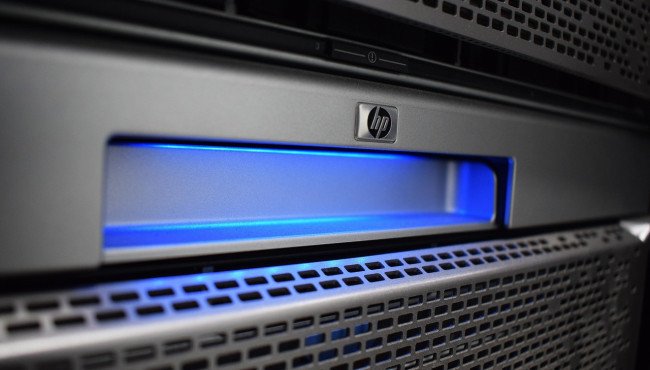views

Understanding the Importance of Web Hosting
Creating an effective online presence requires more than just a good idea and design. The intricate workings behind the scenes of the internet are crucial to the operation of any website. As we click, scroll, and refresh pages, everything seems to happen in an instant; however, there exists a vast, hidden world that makes this seamless experience possible. This is where the concept of Web hosting becomes essential, and it is evolving at a rapid pace to keep up with the demands of modern users.
The Evolution of the Internet and Hosting
A few years ago, the majority of websites functioned merely as digital brochures, serving static content to users. However, the landscape has significantly changed, and today’s websites are dynamic platforms that serve multiple purposes, including being applications, online stores, streaming hubs, and even AI tools. This transformation has prompted hosting companies to innovate at an unprecedented pace, striving to provide faster speeds, enhanced reliability, and security features that operate on autopilot. Furthermore, modern hosting environments are increasingly designed to learn from user interactions and optimize performance accordingly. It is indeed a fascinating development in the world of technology.
Before we delve deeper into the emerging trends in web hosting, let's take a moment to gain a broader perspective on what hosting entails. Understanding the foundational aspects of web hosting will help clarify its significance in the current digital landscape.
Understanding Hosting: A Quick Beginner’s View
For many newcomers, the technical jargon surrounding web hosting can be daunting. I recall assisting a friend in launching her bakery website; her very first question was, “Why do I need hosting? Isn’t that what the internet already is?” This is a perfectly reasonable inquiry that highlights a common misconception about the nature of web hosting.
To clarify, let’s summarize the essentials of web hosting:
-
Hosting can be understood as the process of renting space on the internet where your website's files are stored.
-
Your website's files reside on this rented space, ensuring they are accessible to users.
-
Whenever someone types in your website's name, the hosting service retrieves the relevant content and displays it on their screen.
In essence, there is no secret magic at play; it is simply servers fulfilling their designated roles. For complete newcomers, consider this section as a straightforward introduction to web hosting, an explanation crafted specifically for those who may feel overwhelmed. If you are eager to learn about web hosting, remember not to overthink it. Begin with small steps, experiment, break things, and then fix them again. This trial-and-error approach is how most individuals successfully navigate the learning process.
Now, let’s explore the future directions of hosting and the innovative changes that lie ahead.
Emerging Trends in Web Hosting
Green Hosting: Eco-friendly Servers Are the Future
The internet is not without its environmental impact; data centers consume a substantial amount of energy. As sustainability transitions from being a mere buzzword to a genuine concern, hosting providers are increasingly adopting practices that promote a greener approach. This includes utilizing renewable energy-powered servers, implementing efficient cooling systems, and offering carbon-neutral hosting options. These initiatives reflect a broader commitment to environmental stewardship.
Prominent companies like Google and Amazon are already reimagining their data centers to significantly reduce emissions, showcasing their commitment to sustainability. Interestingly, eco-friendly hosting solutions are not just beneficial for the planet; they resonate with users, who increasingly prefer to engage with greener brands. Consequently, if you operate a business, be prepared for customers to inquire about your "digital footprint" and the environmental implications of your online presence.
AI-Powered Hosting: Smarter Systems, Less Stress
Artificial Intelligence (AI) is already transforming various aspects of our lives, from content creation to customer service. The next frontier is its integration into the world of web hosting, where automation can streamline many behind-the-scenes operations. AI in hosting is progressing toward several key capabilities that promise to enhance user experience.
Among these advancements are the ability to predict server overloads before they occur, automatic malware detection, self-optimization for speed, and chat-based tech support that eliminates the frustrating wait times often associated with traditional customer service. Imagine a hosting system that proactively alerts you to issues before your visitors encounter error messages. This level of foresight is not just a dream; it is becoming a reality.
Edge Hosting: Closer Servers, Faster Websites
In our fast-paced digital environment, users demand instant gratification. Research indicates that if a website takes longer than three seconds to load, a significant number of people will abandon it, demonstrating a lack of patience and willingness to wait. This is precisely why edge hosting, also known as local-first hosting, is gaining traction.
Rather than relying on a single, distant server farm, edge hosting distributes copies of your website across multiple small, regional nodes. This ensures that users can access pages more quickly, which is particularly crucial for activities such as streaming, gaming, global e-commerce, and AI applications that depend on real-time data. Think of it as having miniature internet hubs strategically placed closer to your customers, rather than a single massive hub located far away.
Zero-Downtime Hosting: The New Standard
Historically, downtime was often accepted as a normal part of operating a website, with maintenance windows, upgrades, and occasional crashes being part of the experience. However, today’s users have little tolerance for delays. If your site experiences an outage, you can be assured that users will quickly move on to other options.
The future of hosting technology is leaning toward solutions that ensure zero downtime. This includes live updates that do not require server restarts, automatic failover backups to maintain service continuity, and cloud redundancy to safeguard against failures. The expectation is that your website should remain operational even in the face of unforeseen issues; this level of reliability is no longer a luxury but a necessity.
(Quick note: here’s your scheduled keyword drop: Web hosting.)
Hosting Tailored to Platforms: Not One-Size-Fits-All
The trend in hosting is also shifting toward providing specialized environments tailored to specific needs rather than offering generic plans. For instance, different types of hosting services are emerging to cater to particular platforms, such as:
-
Hosting solutions specifically designed for WordPress websites.
-
Hosting tailored for e-commerce stores utilizing platforms like Shopify or WooCommerce.
-
Hosting designed for applications driven by artificial intelligence.
-
Developer-friendly cloud hosting environments that support a range of programming languages and frameworks.
When your website relies on complex tools or software, opting for customized hosting solutions can lead to better performance and efficiency. Anyone who has attempted to run a resource-intensive site on a "super cheap unlimited plan" can attest to the challenges that arise from such an approach, which often results in subpar performance.
Passwordless Login & Security Evolution
As cyber threats continue to escalate, the landscape of hosting security is evolving beyond traditional firewalls and antivirus software. The future of security in hosting is increasingly focused on sophisticated measures that enhance protection against attacks. This evolution includes:
-
The implementation of hardware-based authentication methods.
-
The widespread use of multi-factor authentication (MFA) for added security may require users to navigate through additional verification screens.
-
Real-time monitoring of potential attacks to quickly identify and mitigate threats.
-
The adoption of zero-trust access models that assume no user or device is inherently trustworthy.
As technology advances, passwords are gradually being supplanted by biometric logins and secure digital keys. While this may sometimes be seen as an inconvenience, it undeniably enhances overall security.
Conclusion: The Future of Hosting Becomes Invisible
As we look to the future of web hosting, the focus is not on the complexity of technology but rather on simplifying the user experience. Hosting will evolve to the point where it feels less like a task involving server management and more like a seamless experience where "my website just works."
We can anticipate a future characterized by greener infrastructure, faster global content delivery, smarter automation, and security measures that operate quietly in the background. The conversation surrounding hosting may diminish, not due to its decreasing importance, but because it will become so seamlessly integrated into our online experiences that it often goes unnoticed. This represents the pinnacle of technological advancement, the kind that enhances our lives without requiring constant attention.
When evaluating or comparing hosting plans, it is essential to recognize that considerations extend beyond mere cost or storage space. The future readiness of your online presence is a critical factor, especially for anyone looking to create something meaningful on the web.











